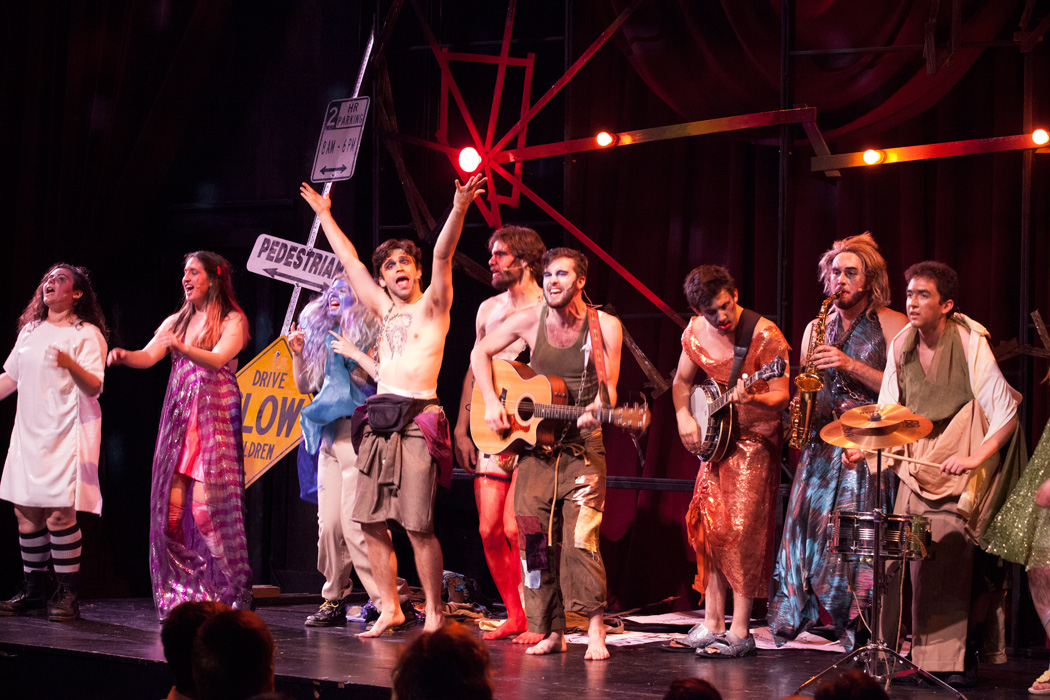Prepared for the Circuit Theatre Company’s performance of The Walk Across America for Mother Earth by Taylor Mac, at the American Repertory Theatre in Cambridge, MA.
—
The Radical Faeries are a decentralized group, one that defies easy description and categorization. Generally speaking, Radical Faeries are queers (many also identify as gay men) who view their sexuality as having a spiritual component. There’s a certain risk involved in saying anything more definitive about them, but it’s worth understanding how the play you’re about to see fits into their worldview.
The Faeries’ principal founder, Harry Hay – Marxist intellectual, amateur historian, musician, engineer, Communist organizer, teacher, and troublemaker – came to the organization’s ideas relatively late in life. Born in 1912, he founded the Mattachine Society, one of America’s first queer liberation organizations, in Los Angeles, in 1950. Hay was the first to conceive of queers as a minority: a group that had a shared identity rather than being defined by behaviors that could be individually pathologized. The name “Mattachine” came from his reading of European pagan and folk rituals; including the Italian commedia.
True to the term “ritual,” Hay and the Mattachines (at least before an anti- Communist internal purge in 1954) envisioned a radical politics of self-knowledge and performed activism. In the 1960s, as Hay imbued his research with ideas from the New Left about the politics of witness and experience, Native activism, and environmental concerns, the ideas behind the Faeries began to coalesce.
Hay ultimately envisioned of the Faeries as representing an ideal of queer participation in public and political space. Inspired by the Native two-spirit or berdache and medieval fools and jesters, Faeries existed in a transformative consciousness close to the natural world, outside the system of binary gender, considering systems and persons they interacted with as subjects to be respected and honored rather than objects to be dominated and conquered. Bound up in his conception was a deep belief in Marx and Engels’ notion of a utopian primitive matriarchal Communism – to Hay, the Faeries’ task was to guide the world back towards that ideal state, using their radically empathetic consciousness as a spiritual guide.
In their ritual practices, Faeries combine these diverse roots (Marxism, pagan religion, Native spirituality, and commedia/fooling performance) into an interwoven spiritual mode of interacting with one another and the world. Performing their identities, they feel, brings them and non-Faeries closer to their ideal personal and political way of life. A self-identified Faerie, Taylor Mac created this play as part of that project.
Tonight, you’ll join the actors and your fellow audience members in some Radical Faerie ritual. The commedia elements of the play’s form and the environmental and Native activist causes of its characters arise from the same integrated theory. To these characters, as to Mac and to most Faeries, identity, spirituality, ritual, and activism are integrated into a holistic way of life. Join them there for a while, on their terms, and see if you can’t develop a radical subjectivity of your own.
